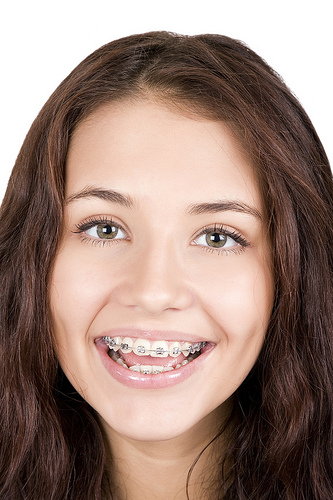July 31st, 2013

Have you recently moved, changed your phone number, orchanged any of your information that we use to best serve you? If so, be sure to inform us of your changes!
Also, did you know that we have a vibrant social mediapresence? Have you had a chance to connect with us on Facebook, Twitter, or YouTube? We’re always looking to stay connected with our patients outside of the office, and our social media networks are an awesome way to see our photos and get some great updates and information!
So, when you have a chance, be sure to visit our website and then connect with us on our social media networks! We can’t wait to hear what you’ve been up to since your last visit with us!
July 24th, 2013

While everyone understands that a dentist takes care of teeth, not everyone is aware of what an orthodontist does. This confusion sometimes leads to misunderstandings about what Alta View Orthodontics does for our patients and how exactly Dr. Tony Skanchy can help them. Let’s take a closer look at a couple of the myths and misconceptions about orthodontics.
Perhaps the biggest misconception about the orthodontist is that we’re just like your family dentist. The truth is, we’re actually very different. While it’s true that both orthodontists and dentists care about helping you enjoy a lifetime of good dental and oral health, we go about achieving this goal in different ways. For instance, if you need to have a cavity filled, you probably won’t make an appointment to see me. Dentists are the health professionals to see if you’re concerned about a cavity or need a filling. A dentist can also treat gum disease, tooth decay, toothaches, and other common oral health problems.
People see an orthodontist for very particular services. Most of the patients we see on a daily basis are here because they have braces, or they need to be fitted with braces or another form of tooth-straightening device. In other words, they consult an orthodontist when they are concerned about the alignment of their teeth. As a child grows up, his or her teeth may come in crooked. This can happen for a number of reasons, so it’s important for an orthodontist to take a look at a child’s teeth at about seven years of age. At that age, it’s possible to detect any problems that have not become too advanced to treat easily. Your family dentist may also refer your child to an orthodontist once the adult teeth have fully grown in.
Another common misconception about orthodontists is that we only treat children. It’s true that when you visit an orthodontic clinic you’re apt to see a lot of young kids, but you’ll also see teenagers, college students, and adults. Because crooked teeth can be caused by a number of different factors, it’s entirely possible for someone to require orthodontic treatment at any age.
If you want to know more about the practice of orthodontics or what your orthodontist can do for you, then simply ask Dr. Tony Skanchy. It’s best to get answers to your specific questions directly from the person who will be treating you. While you’re sure to find Internet resources helpful, there really is no substitute for the personal attention you’ll get during your appointment in Sandy, UT.
July 17th, 2013

What’s great about Invisalign is that the treatment is designed to benefit just about anyone, and that’s part of what makes it work. To find out if you are the right candidate for Invisalign treatment, the first thing Dr. Tony Skanchy and our team do is to take an impression of your teeth as they are now and digitize it. Using special software, we look at the current positioning of your teeth and compare it to the way your teeth should look.
Next, our team at Alta View Orthodontics use special software to map out the exact path your teeth will take from the beginning of your treatment to the end. Based on the results, a set of custom aligners are created just for your teeth. Throughout the course of treatment, you will be required to wear these clear, removable aligners one at a time; each one moving your teeth closer and closer to their final, perfectly-aligned position. And since the aligners are virtually invisible, nobody around you will even know you are in treatment!
If you have questions about Invisalign, or would like to find out if you are a candidate for Invisalign treatment, please give us a call at our Sandy, UT office!












 Website Powered by Sesame 24-7™
Website Powered by Sesame 24-7™